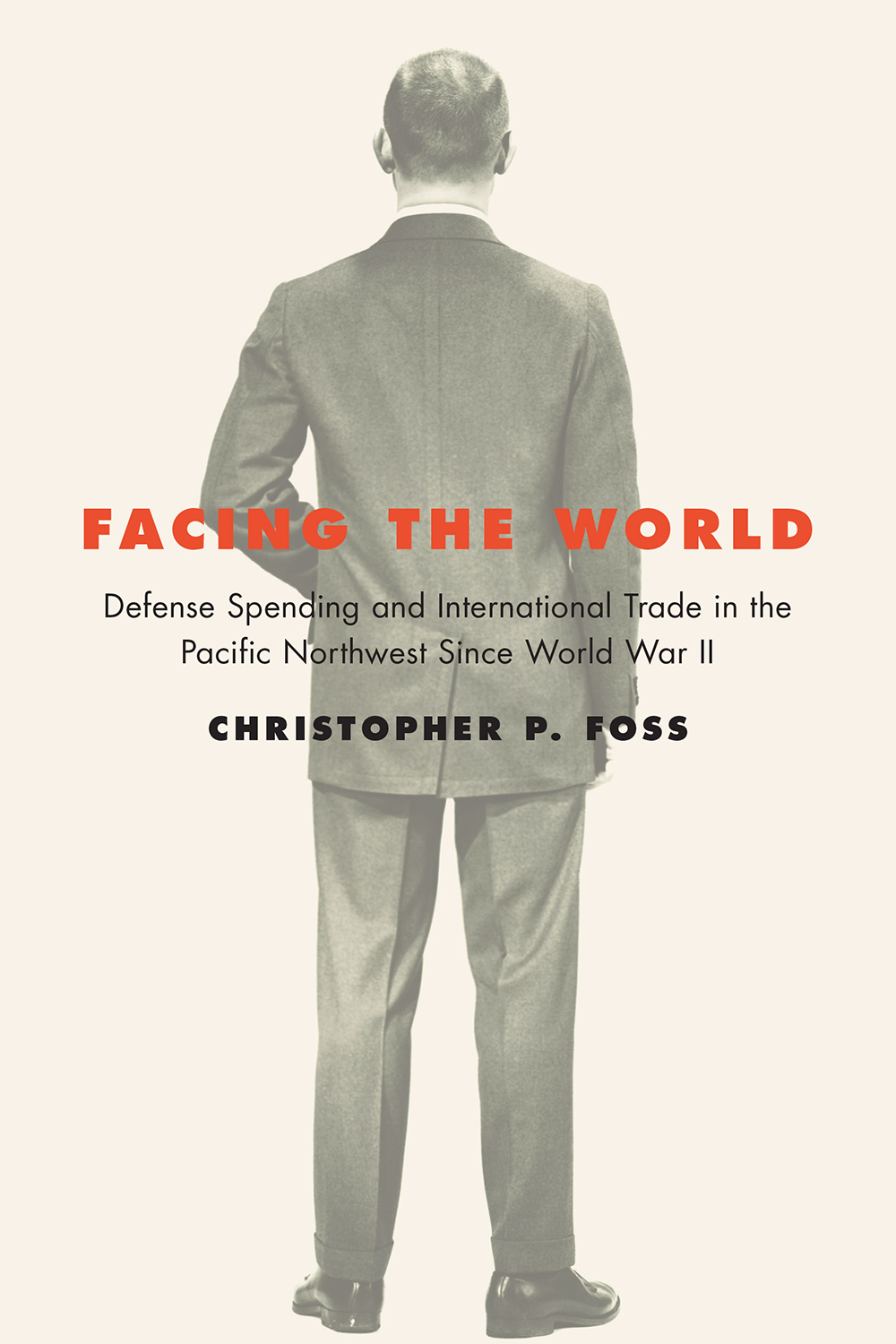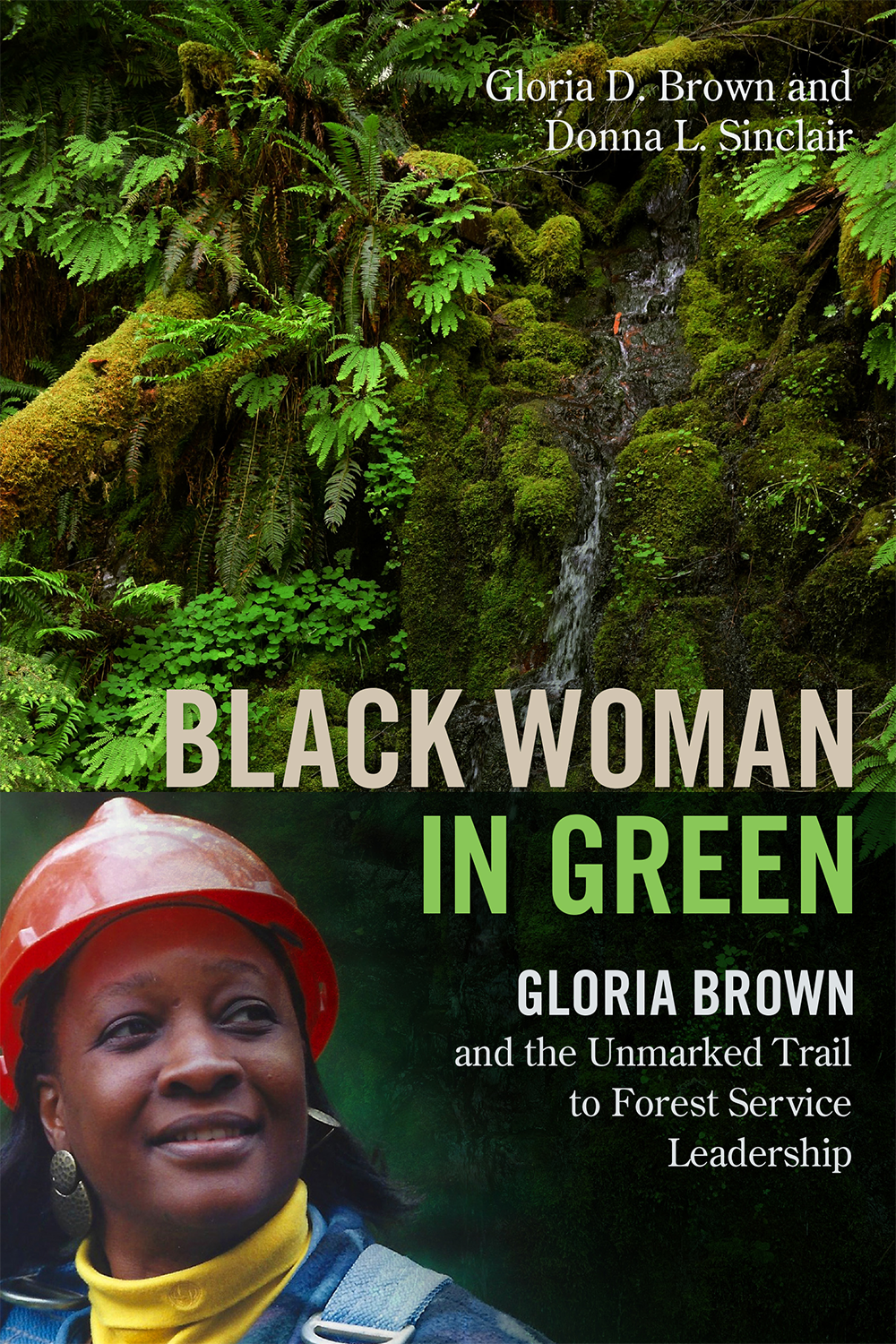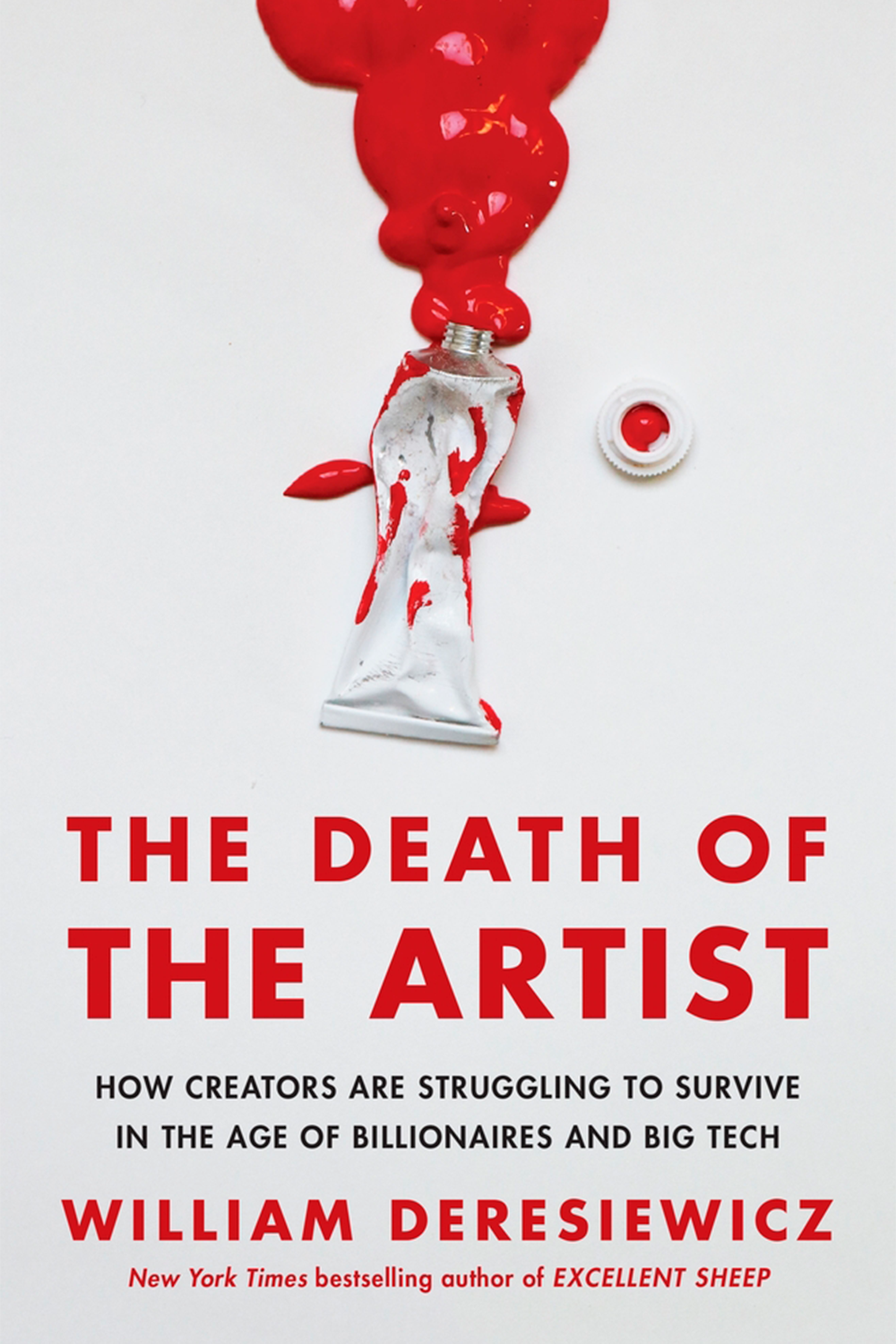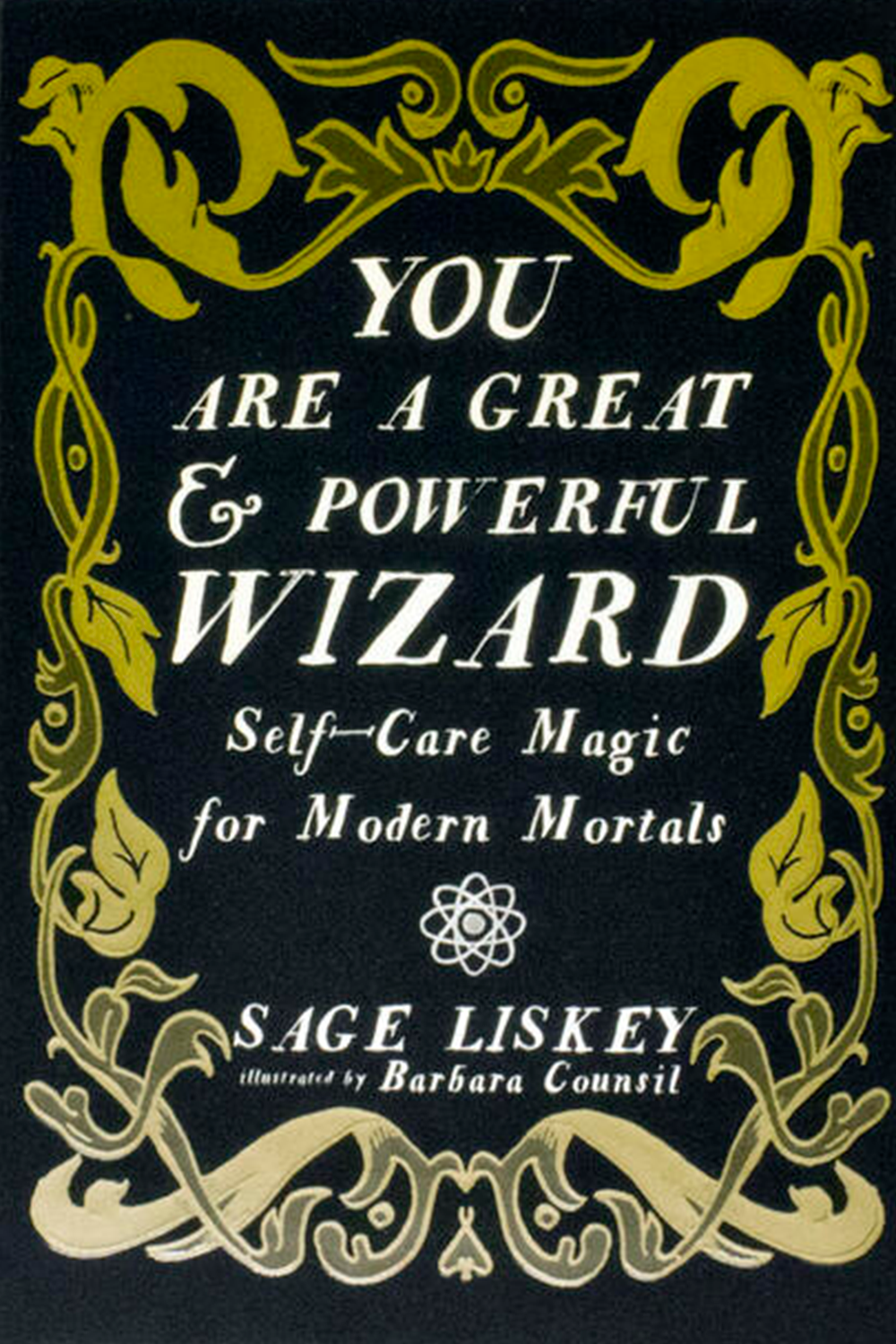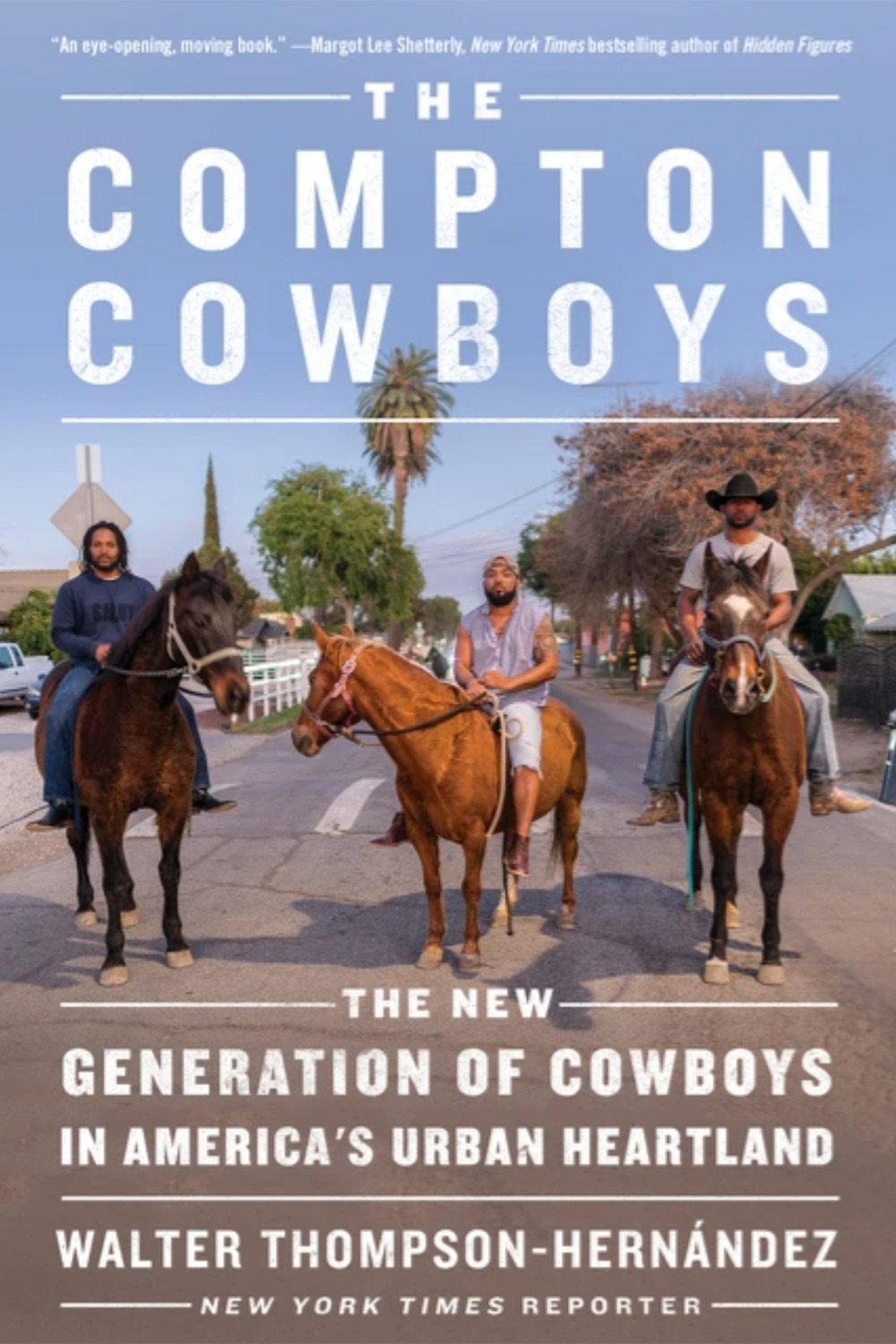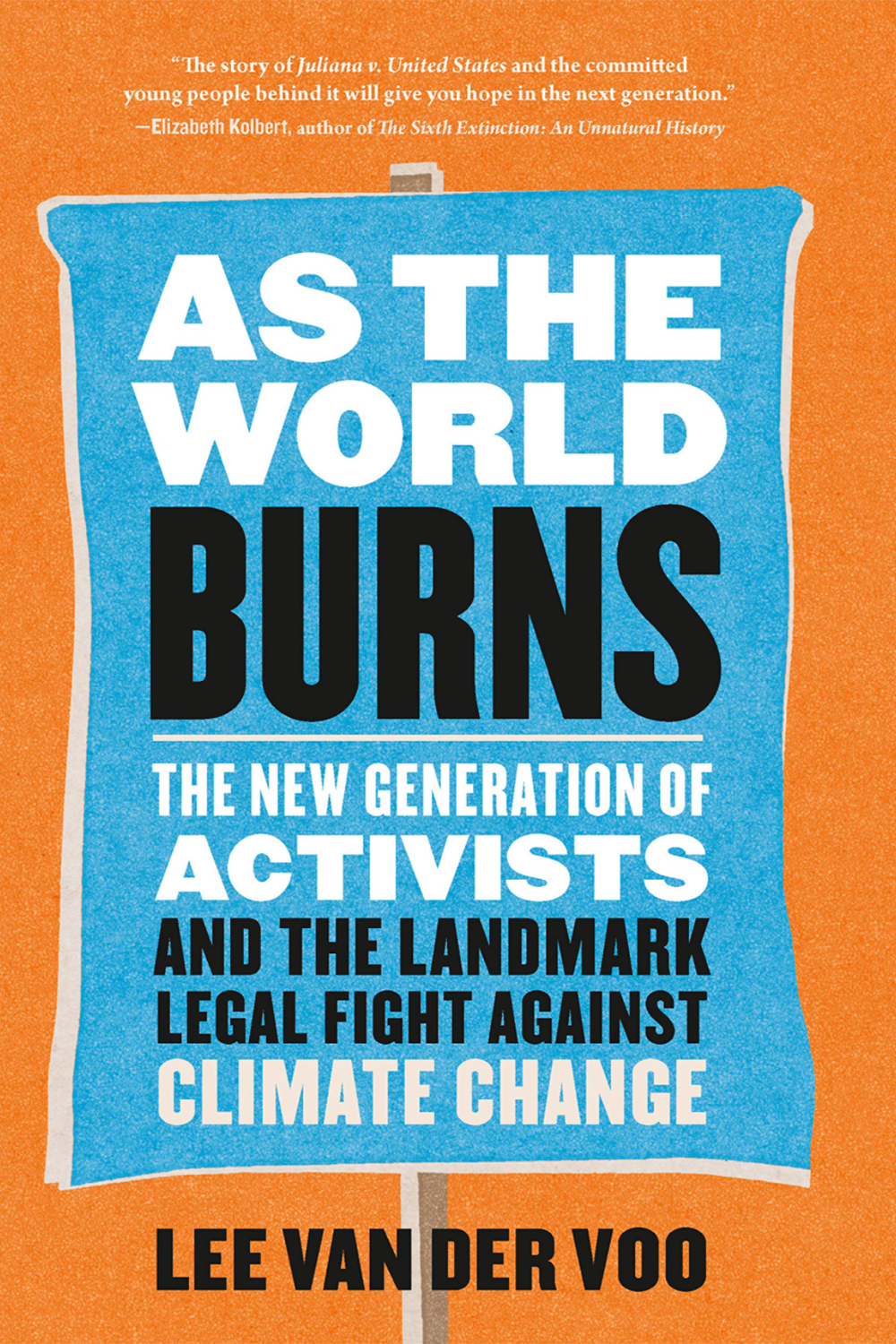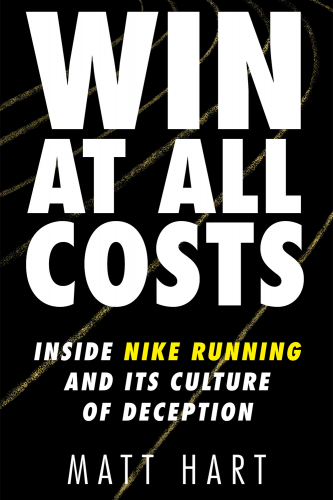
Win At All Costs: Inside Nike Running and Its Culture of Deception by Matt Hart. HarperCollins, $29.99.
Even the most noble athletes don’t train naturally, refusing to take part in the converging of science and athleticism. Coaches and trainers rely on science to push human performance. But how far is too far? Journalist Matt Hart looks at how Nike’s running program and former coach Alberto Salazar pushed athletes to doping and unethical training schemes to win in his book Win at All Costs: Inside Nike Running and Its Culture of Deception.
Before he gets to the juicy parts of Salazar’s doping and the unsafe culture he created at Nike, Hart explores the company’s history that includes Phil Knight and Bill Bowerman’s relationship in Eugene (and how Bowerman enjoyed urinating on his athletes while in the shower as a prank) to a history of recruiting athletes who are obviously unethical (like cyclist Lance Armstrong). The result is a journalistic powerbomb that brings together sports drama, peeling away the many layers of secrecy at Nike. It’s hard to put this book down. — Henry Houston
Facing The World: Defense Spending and International Trade in the Pacific Northwest Since World War II by Christopher P. Foss, OSU Press, $21.
At the start of 1940, Oregon’s population was barely more than a million while Washington state had all of 1.7 million people. The Northwest was a neglected region of the U.S. That didn’t last long. From World War II through the Cold War, the two states developed with a flurry of contracts either through the largesse of the Pentagon (Washington) or through international trade (Oregon), and population centers like Seattle and Portland began to soar.
Politicians (titans like senators Henry “Scoop” Jackson, Mark Hatfield and Bob Packwood as well as U.S. Rep. Tom Foley) fought tribally to seize pork for their districts or states. It was a cut-throat race with clear winners (Boeing, Nike and tech companies), a struggling working class in the middle trying to balance the boom-or-bust reality of the new world, and losers like the Hanford Nuclear Site and its environmental devastation that Foss writes will take generations to fully clean up. Every politician in Foss’ accounting had to confront the unintended consequences of defense spending and international trade in U.S. society, consequences that exist and are debated to this day. Facing the World is a good historical start to understanding the economic and environmental stage that we all share. — Dan Buckwalter
Black Woman in Green: Gloria Brown and the Unmarked Trail to Forest Service Leadership by Gloria Brown and Donna Sinclair. OSU Press, Corvallis. $19.95.
Gloria Brown’s professional journey was long and arduous, and it was tinged with personal setbacks. It began as an agency transcriptionist in Washington, D.C., and took her ultimately to her “dream job” as supervisor of the Siuslaw National Forest in 1999, the first Black woman to achieve that distinction in the more than 100-year history of the U.S. Forest Service. Its start came the night her husband was killed in an auto accident and Brown was left to raise three kids. From there it was on to Missoula, Montana, to absorb forestry from the ground up and learn about racism in new forms than she had previously experienced. Upon transferring to Oregon, Brown’s professional life accelerated more and her kids settled. She became the head of Siuslaw National Forest, and she capped her career as supervisor of Los Padres National Forest in California. Black Woman in Green is an engaging, uplifting oral history, told to Donna Sinclair, and well worth the read. — Dan Buckwalter
The Death of the Artist: How Creators are Struggling to Survive in the Era of Billionaires and Big Tech by William Deresiewicz. Henry Holt and Co., $27.99.
Remember when the World Wide Web was going to save us all by making information free? How we would all become creative geniuses, able to bypass the evil middlemen of publishing/music/cinema and sell our work directly to the public and make tons of money? The Death of the Artist isn’t the only book to trace the economic devastation the web has wrought on the creative sector of the economy — think foundering newspapers and popular musicians who can’t afford health insurance — but it’s certainly one of the best researched and written. Deresiewicz lays out in excruciating detail what is now obvious to any careful observer, that the only people who greatly benefit from creative work online are the stockholders of Google, Facebook and the like. But the situation is worse than you may imagine. Deresiewicz estimates creators lost $50 billion in revenue to Big Tech companies in the decade ending in 2015. Most of that loss came because of piracy, which the tech giants swear is too difficult to police — most likely because it’s so lucrative for them to allow it to go on. The big flaw in The Death of the Artist is that it’s light on proposed solutions, but the book does a good job of mapping out the deep problems that are still obfuscated by the romance of the web. — Bob Keefer
Tightrope: Americans Reaching for Hope by Nicholas D. Kristof and Sheryl WuDunn. Alfred A Knopf, $27.95.
Once again, the presidential election was a reminder that the rural-urban divide in the U.S. remains one of its largest domestic problems. Pulitzer Prize-winning authors Nicholas D. Kristof and Sheryl WuDunn walk readers through the decaying communities that have lost their economic engines (whether logging, mining or manufacturing), humanizing the people left behind by the governments led by both major political parties.
The authors paint an America with Yamhill, Oregon, as their subject. Based on interviews and with statistics peppered in, they compose a picture that shows people frustrated with their reality who then turn to things like drugs to cope, which then can lead to “death by despair.”
Like John Steinbeck did in exposing the plight of the migrant workers and working poor in Grapes of Wrath, the authors of Tightrope have shown the new suffering: the working class and disappearing middle class and how the U.S. economic system pushes them to frustration and drugs to cope.
As the authors show in Tightrope, members of the working class — regardless of race, creed or ethnicity — have more in common than politicians would like us to believe. The American society built by presidents Franklin Delano Roosevelt, Dwight Eisenhower and Lyndon Johnson has been hocked, and no one has bothered to redeem it. But Kristof and WuDunn offer some solutions to get Americans back to a path of a compassionate economy. — Henry Houston
You Are a Great & Powerful Wizard: Self-Care Magic for Modern Mortals by Sage Liskey, illustrated by Barbara Counsil, Microcosm Publishing (Portland). $19.95.
The title of Eugene author Sage Liskey’s latest book can throw you. Don’t let it.
“This continues a line of thinking I’ve had,” Liskey says of a previous self-published book titled The Happiest Choice: Essential Tools for Everyone’s Brain Feelings. “We live in a toxic culture. A huge goal of this book is to introduce all age groups to, A, getting past depression and anxiety, and, simultaneously, motivating people to become their better selves. My goal is to empower people.”
Largely self-taught (and with a nod to the late authors Marshall Roseberg and Ursula K. Le Guin), Liskey has distilled a great deal of carefully researched information for Wizard into easy to understand bites that can help people cultivate self awareness, self control and grow awareness for relationships and communities beyond oneself. In short, how to be a better wizard and slay the bad wizards that surround you. The illustrations are cool, too.
And it’s selling well. Wizard is currently the No. 7 bestselling non-fiction title at Powell’s, and it’s at No. 1 in the mental health section. Also, Liskey would love to talk more about what he calls his “self-exploration” at his author booth at the Eugene Holiday Market. It should be good conversation. — Dan Buckwalter
Compton Cowboys: The New Generation of Cowboys in America’s Urban Heartland by Walter Tompson-Hernández. William Morrow, $28.99.
I was first introduced to the Compton cowboys through their Instagram — an account filled with dramatic and sometimes heartwarming photos of African American horsemen in the heart of Los Angeles. When Black Lives Matter began its rise this year, the cowboys, male and female, took to the roads in protest, calling attention to police brutality against Black people. As the longtime tradition of Black cowboys — and these Compton ones in particular gained fame — enter the book by Walter Tompson-Hernández, Compton Cowboys: The New Generation of Cowboys in America’s Urban Heartland, goes behind the photographs and the protests into the lives of these riders and their horses in Richland Farms, a rural area of Compton in Los Angeles, home to chickens, goats, horses and the Compton Cowboys. — Camilla Mortensen
As the World Burns: The New Generation of Activists and the Landmark Legal Fight Against Climate Change by Lee Van der Voo. Timber Press, $27.95.
Like many Eugeneans, I have been following Juliana v. United States since the beginning — the plaintiff for whom the case is named grew up here and is the daughter of two longtime local forest activists. Kelsey Juliana and 20 other youth activists filed the lawsuit in 2015 and argued that their constitutional right to life, liberty and property were being violated. The federal government has allowed industry to keep harming the climate and caused tangible harm. Like the repercussions of climate change itself, the book is heartbreaking as it’s not just the story of a lawsuit, it’s the story of the effects global warming has had on these children — some of whom have grown into adulthood over the years of the legal battle — and their communities.—Camilla Mortensen
Young Bucks: Killing the Business from Backyards to the Big Leagues by Matt and Nick Jackson, Dey Street Books. $27.99
Pro wrestling tag team brothers Matt and Nick Jackson were on the verge of taking on the biggest name in wrestling (WWE) with the new promotion All Elite Wrestling before COVID-19 shut down live events. The show goes on in pro wrestling, but like theater, it requires audience energy. This tag team is somewhat hated by some pro wrestling purists for having meta names for wrestling moves (such as naming a finisher after the wrestling journalist Dave Meltzer) and relying on fast-paced matches with a ton of acrobatic spots; they’ve been accused of “killing the business” of wrestling, which is the reason for the subtitle. The Jackson memoir dives into growing up on pro wrestling and making their own road to stardom. It’s the underdog tale we all need right now. — Henry Houston
